Starting August 1, 2025, Uzbekistan abolished mandatory certification and technical regulations for food products and other high-risk goods as part of a government effort to stimulate entrepreneurship, boost exports, and modernize trade policy.
The reform was introduced by a decree signed by the President April 18, 2025, which aims to increase competition in the domestic market and align customs valuation procedures with the 1994 General Agreement on Tariffs and Trade (GATT). Customs benefits and special clearance procedures for certain imports are removed, and customs value determination will strictly follow GATT rules.
Key changes include:
- Cancellation of mandatory state registration for high-risk goods such as children’s clothing, hygiene items, and toothbrushes. Importers will instead submit declarations of conformity.
- Registration of these declarations with certification bodies is no longer required; they will be processed through an information system for technical compliance.
- Oversight of sanitary, hygiene, and safety standards is to be handled by the Committee for Sanitary and Epidemiological Well-Being, which will monitor food producers.
By the end of 2025, several mandatory procedures will be eliminated, including:
- Certification of domestic and imported food products based on laboratory testing and sanitary-epidemiological conclusions;
- Health Ministry approval of technical documentation for all food categories (including baby food, dietary products, supplements, and foods made with new technologies);
- Veterinary certification of plant products, textiles, leather goods, toys, and sports equipment.
Overall, the reform represents a significant liberalization of Uzbekistan’s certification and trade system, intended to reduce bureaucratic barriers and align national standards with international trade norms.





